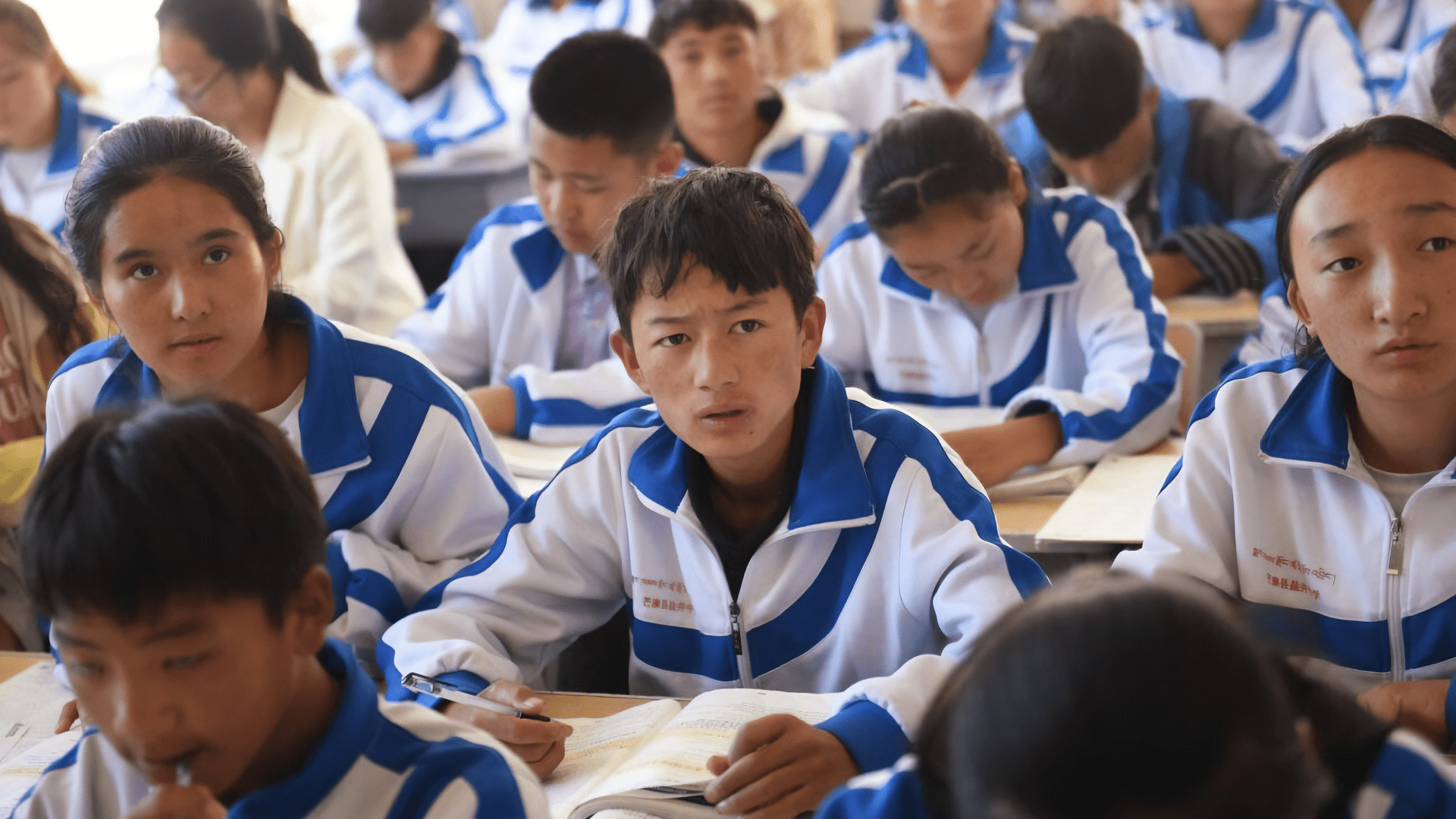
Life in a minority boarding school: a refugee’s account
Earlier this year, a group of Tibetans managed to escape Tibet and reach Dharamsala in northern India. There, they were interviewed by staff from our research partner Tibet Watch. Previous interviews can be found here and here.
This third interview was conducted with a 15-year-old from Kham in eastern Tibet. She completed her elementary education in July 2022 in Lhasa alongside around 800 students of both Tibetan and Chinese descent. She returned to Kham and a month later, in September 2022,. There, she joined a local County Minority Boarding Secondary School, where she lived for four months.
During her interview, she spoke about life in a minority boarding school. The following account is in her own words. We have kept her identity anonymous and omitted a few geographical details.
The medium of instruction in the school is mainly Chinese. Except for the Tibetan language class, the rest of the subjects like Mathematics, English, History, Physical Education, Biology, Science, Morality, and Chinese are only taught in Chinese language. Teaching and communication in Chinese are prioritised in the classes. Tibetan language class is optional and marks in the Tibetan language exam are not even counted in the final exam score.
There are around 50 teachers and between 300 to 400 students. Except for the son of the principal, the rest of the students are Tibetan. Most of the children are from nomadic families and farmers from [local] counties. We have only ten teachers of Tibetan origin who teach the Tibetan language.
We have to wake up early, around four to five in the morning every day, drop our school bags in the class and start morning exercises like running in the playground- all under the close watch of surveillance cameras everywhere. Then follows breakfast, the morning reading period (self-study), and then the regular classes begin.
At the end of sixth grade, we get a month’s holiday in summer and two months in winter. I get the chance to speak and converse in Tibetan only at home since the environment in school is only of Chinese education and communication.
Most of the other students get a chance to visit home at weekends. But my class didn’t get any, except for school vacation, since our class has the top 40 students who have scored the highest mark in the exam and the best teachers in the school to teach us. It is considered as a key class. The rest of the class could go home once a week. My class, in particular, was not allowed to go holiday on the weekend. So I spent it reciting my homework.
Information supplied by Tibet Watch

